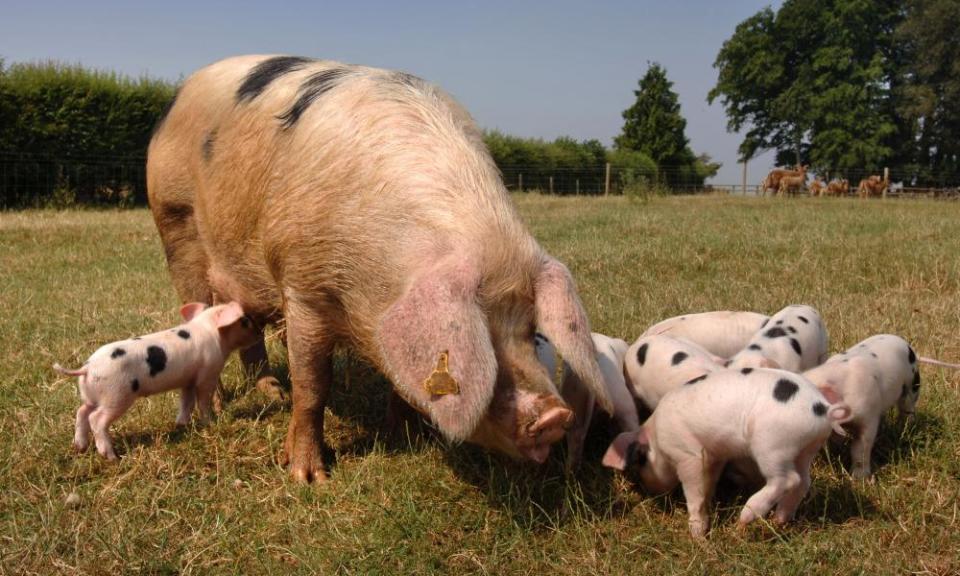UK carbon dioxide shortage could force farmers to cull pigs

Britain’s pig farmers are the latest casualty of the worsening energy crisis which threatens to trigger a shortage of carbon dioxide used across the food and drinks industry.
Rocketing gas prices have caused a Europe-wide slowdown for some chemical factories that produce fertiliser, a byproduct of which is carbon dioxide, used in fizzy drinks and beer as well as in the meat industry to stun animals before slaughter.
Meat industry representatives have warned that farmers may imminently be required to begin “humane” pig culls because of a looming shortage of carbon dioxide to slaughter the backlog of animals destined for abattoirs that are already understaffed amid labour shortages.
Related: Brexit: food and drink exports to EU suffer ‘disastrous’ decline
It would be the first time that farmers would be required to destroy their animals en masse since the outbreak of foot-and-mouth disease two decades ago forced the government to send the army to British farms to cull livestock.
Nick Allen, chief executive of the British Meat Processors Association, said: “We urgently need the secretary of state for business to convene the big CO2 manufacturers to demand that they coordinate to minimise disruption, and provide information to Britain’s businesses so contingency plans can be made.”
The government has held emergency talks with representatives from the food and drink industries, as well as the UK meat sector, over concerns that trouble in the chemicals industry could affect CO2 supplies for the food sector.
Norway-based chemicals company Yara International on Friday set out plans to curtail its ammonia production at six facilities across Europe by 40%, including a plant in Hull, which will also affect the CO2 supply chain. It blamed record gas prices across Europe for affecting its profit margins.
The decision follows the shutdown of two fertiliser plants in the north of England by US company CF Industries earlier this week, also because of record gas prices. The company shut its plants in Billingham in Teesside and Ince in Cheshire, which employ about 600 workers.
Fertiliser plants use gas to produce ammonium nitrate which is used in agriculture to support crop yields, but also produce food-grade carbon dioxide. A CO2 shortage three years ago triggered panic among meat producers as well as pubs and breweries.
Allen said the latest carbon supply chain squeeze would be worse than the 2018 disruption because there has been “zero warning of the planned closure” which has “plunged the industry into chaos”.
Zoe Davies, the chief executive of the National Pig Association, told the Guardian that pig farms were “at bursting point already” and the carbon dioxide shortage would compound the disruption in UK abattoirs caused by a lack of labour.
“Government has got to intervene,” she said. “I was talking to a farmer earlier who was almost in tears at the thought of having to kill animals that they had lovingly raised. The last thing they want to see is animals being killed on farms.”
The UK’s Food and Drink Federation has also been in talks with government officials about the looming issues in the UK’s carbon dioxide supply chain, and said it would closely monitor the situation to further understand its consequences.
A government spokesperson said it was “monitoring this situation closely” and officials were in regular contact with the food and farming organisations and industry, “to help them manage the current situation”.

 Yahoo Finance
Yahoo Finance 